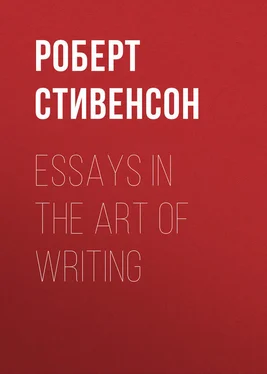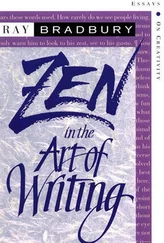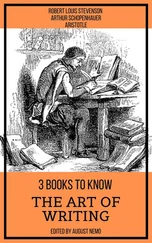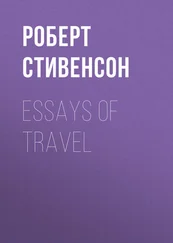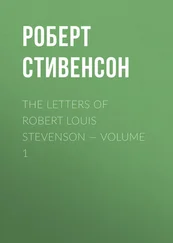Роберт Стивенсон - Essays in the Art of Writing
Здесь есть возможность читать онлайн «Роберт Стивенсон - Essays in the Art of Writing» — ознакомительный отрывок электронной книги совершенно бесплатно, а после прочтения отрывка купить полную версию. В некоторых случаях можно слушать аудио, скачать через торрент в формате fb2 и присутствует краткое содержание. Жанр: literature_19, foreign_antique, foreign_prose, essays, на английском языке. Описание произведения, (предисловие) а так же отзывы посетителей доступны на портале библиотеки ЛибКат.
- Название:Essays in the Art of Writing
- Автор:
- Жанр:
- Год:неизвестен
- ISBN:нет данных
- Рейтинг книги:4 / 5. Голосов: 1
-
Избранное:Добавить в избранное
- Отзывы:
-
Ваша оценка:
- 80
- 1
- 2
- 3
- 4
- 5
Essays in the Art of Writing: краткое содержание, описание и аннотация
Предлагаем к чтению аннотацию, описание, краткое содержание или предисловие (зависит от того, что написал сам автор книги «Essays in the Art of Writing»). Если вы не нашли необходимую информацию о книге — напишите в комментариях, мы постараемся отыскать её.
Essays in the Art of Writing — читать онлайн ознакомительный отрывок
Ниже представлен текст книги, разбитый по страницам. Система сохранения места последней прочитанной страницы, позволяет с удобством читать онлайн бесплатно книгу «Essays in the Art of Writing», без необходимости каждый раз заново искать на чём Вы остановились. Поставьте закладку, и сможете в любой момент перейти на страницу, на которой закончили чтение.
Интервал:
Закладка:
‘All night | the dreàd | less àn | gel ùn | pursùed,’ 2 2 Milton.
goes the schoolboy; but though we close our ears, we cling to our definition, in spite of its proved and naked insufficiency. Mr. Jenkin was not so easily pleased, and readily discovered that the heroic line consists of four groups, or, if you prefer the phrase, contains four pauses:
‘All night | the dreadless | angel | unpursued.’
Four groups, each practically uttered as one word: the first, in this case, an iamb; the second, an amphibrachys; the third, a trochee; and the fourth, an amphimacer; and yet our schoolboy, with no other liberty but that of inflicting pain, had triumphantly scanned it as five iambs. Perceive, now, this fresh richness of intricacy in the web; this fourth orange, hitherto unremarked, but still kept flying with the others. What had seemed to be one thing it now appears is two; and, like some puzzle in arithmetic, the verse is made at the same time to read in fives and to read in fours.
But again, four is not necessary. We do not, indeed, find verses in six groups, because there is not room for six in the ten syllables; and we do not find verses of two, because one of the main distinctions of verse from prose resides in the comparative shortness of the group; but it is even common to find verses of three. Five is the one forbidden number; because five is the number of the feet; and if five were chosen, the two patterns would coincide, and that opposition which is the life of verse would instantly be lost. We have here a clue to the effect of polysyllables, above all in Latin, where they are so common and make so brave an architecture in the verse; for the polysyllable is a group of Nature’s making. If but some Roman would return from Hades (Martial, for choice), and tell me by what conduct of the voice these thundering verses should be uttered – ‘ Aut Lacedæmonium Tarentum ,’ for a case in point – I feel as if I should enter at last into the full enjoyment of the best of human verses.
But, again, the five feet are all iambic, or supposed to be; by the mere count of syllables the four groups cannot be all iambic; as a question of elegance, I doubt if any one of them requires to be so; and I am certain that for choice no two of them should scan the same. The singular beauty of the verse analysed above is due, so far as analysis can carry us, part, indeed, to the clever repetition of L, D, and N, but part to this variety of scansion in the groups. The groups which, like the bar in music, break up the verse for utterance, fall uniambically; and in declaiming a so-called iambic verse, it may so happen that we never utter one iambic foot. And yet to this neglect of the original beat there is a limit.
‘Athens, the eye of Greece, mother of arts,’ 3 3 Milton.
is, with all its eccentricities, a good heroic line; for though it scarcely can be said to indicate the beat of the iamb, it certainly suggests no other measure to the ear. But begin
‘Mother Athens, eye of Greece,’
or merely ‘Mother Athens,’ and the game is up, for the trochaic beat has been suggested. The eccentric scansion of the groups is an adornment; but as soon as the original beat has been forgotten, they cease implicitly to be eccentric. Variety is what is sought; but if we destroy the original mould, one of the terms of this variety is lost, and we fall back on sameness. Thus, both as to the arithmetical measure of the verse, and the degree of regularity in scansion, we see the laws of prosody to have one common purpose: to keep alive the opposition of two schemes simultaneously followed; to keep them notably apart, though still coincident; and to balance them with such judicial nicety before the reader, that neither shall be unperceived and neither signally prevail.
The rule of rhythm in prose is not so intricate. Here, too, we write in groups, or phrases, as I prefer to call them, for the prose phrase is greatly longer and is much more nonchalantly uttered than the group in verse; so that not only is there a greater interval of continuous sound between the pauses, but, for that very reason, word is linked more readily to word by a more summary enunciation. Still, the phrase is the strict analogue of the group, and successive phrases, like successive groups, must differ openly in length and rhythm. The rule of scansion in verse is to suggest no measure but the one in hand; in prose, to suggest no measure at all. Prose must be rhythmical, and it may be as much so as you will; but it must not be metrical. It may be anything, but it must not be verse. A single heroic line may very well pass and not disturb the somewhat larger stride of the prose style; but one following another will produce an instant impression of poverty, flatness, and disenchantment. The same lines delivered with the measured utterance of verse would perhaps seem rich in variety. By the more summary enunciation proper to prose, as to a more distant vision, these niceties of difference are lost. A whole verse is uttered as one phrase; and the ear is soon wearied by a succession of groups identical in length. The prose writer, in fact, since he is allowed to be so much less harmonious, is condemned to a perpetually fresh variety of movement on a larger scale, and must never disappoint the ear by the trot of an accepted metre. And this obligation is the third orange with which he has to juggle, the third quality which the prose writer must work into his pattern of words. It may be thought perhaps that this is a quality of ease rather than a fresh difficulty; but such is the inherently rhythmical strain of the English language, that the bad writer – and must I take for example that admired friend of my boyhood, Captain Reid? – the inexperienced writer, as Dickens in his earlier attempts to be impressive, and the jaded writer, as any one may see for himself, all tend to fall at once into the production of bad blank verse. And here it may be pertinently asked, Why bad? And I suppose it might be enough to answer that no man ever made good verse by accident, and that no verse can ever sound otherwise than trivial when uttered with the delivery of prose. But we can go beyond such answers. The weak side of verse is the regularity of the beat, which in itself is decidedly less impressive than the movement of the nobler prose; and it is just into this weak side, and this alone, that our careless writer falls. A peculiar density and mass, consequent on the nearness of the pauses, is one of the chief good qualities of verse; but this our accidental versifier, still following after the swift gait and large gestures of prose, does not so much as aspire to imitate. Lastly, since he remains unconscious that he is making verse at all, it can never occur to him to extract those effects of counterpoint and opposition which I have referred to as the final grace and justification of verse, and, I may add, of blank verse in particular.
4. Contents of the Phrase . – Here is a great deal of talk about rhythm – and naturally; for in our canorous language rhythm is always at the door. But it must not be forgotten that in some languages this element is almost, if not quite, extinct, and that in our own it is probably decaying. The even speech of many educated Americans sounds the note of danger. I should see it go with something as bitter as despair, but I should not be desperate. As in verse no element, not even rhythm, is necessary, so, in prose also, other sorts of beauty will arise and take the place and play the part of those that we outlive. The beauty of the expected beat in verse, the beauty in prose of its larger and more lawless melody, patent as they are to English hearing, are already silent in the ears of our next neighbours; for in France the oratorical accent and the pattern of the web have almost or altogether succeeded to their places; and the French prose writer would be astounded at the labours of his brother across the Channel, and how a good quarter of his toil, above all invita Minerva , is to avoid writing verse. So wonderfully far apart have races wandered in spirit, and so hard it is to understand the literature next door!
Читать дальшеИнтервал:
Закладка:
Похожие книги на «Essays in the Art of Writing»
Представляем Вашему вниманию похожие книги на «Essays in the Art of Writing» списком для выбора. Мы отобрали схожую по названию и смыслу литературу в надежде предоставить читателям больше вариантов отыскать новые, интересные, ещё непрочитанные произведения.
Обсуждение, отзывы о книге «Essays in the Art of Writing» и просто собственные мнения читателей. Оставьте ваши комментарии, напишите, что Вы думаете о произведении, его смысле или главных героях. Укажите что конкретно понравилось, а что нет, и почему Вы так считаете.
